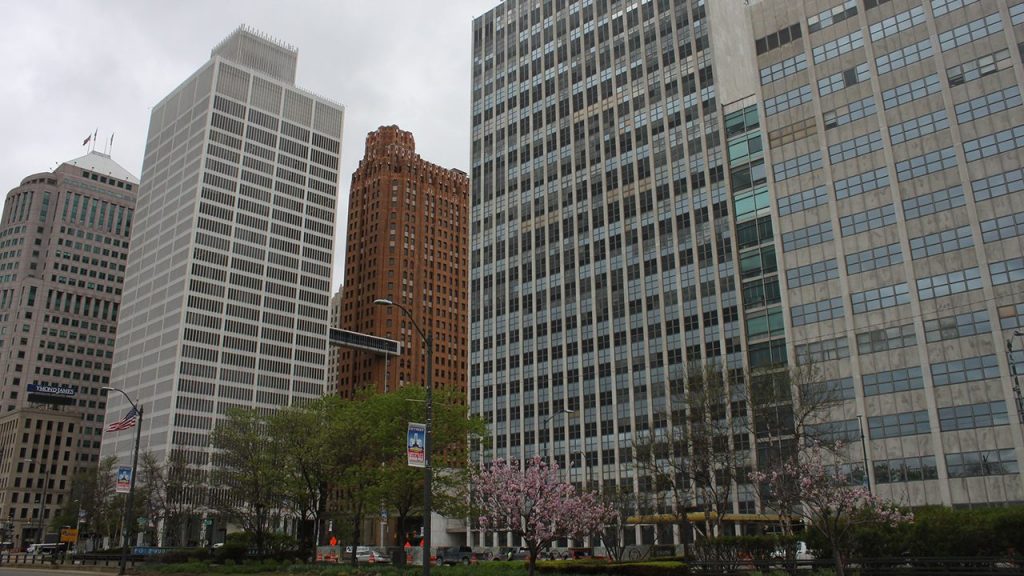How U.S. cities are faring post-Great Recession
Author Michelle Wilde Anderson says municipalities need to establish a cycle of progress where people want to be part of the solution.

Downtown Detroit Coleman A Young Municipal Center.
Last month, the water system in Jackson, Mississippi — the state’s largest city — failed, leaving most of its residents without running water. The problem reminds some of the 2014 Flint water crisis, where lead from old pipes leached into the water system.
These issues, as well as extreme weather events last month across southeast Michigan, highlight the need to fund local municipalities. But as Detroit continues to face challenges with taxation, a declining population and home ownership, a new book examines how residents — both in the city and beyond — are reimagining ways to rebuild their towns and cities.
“Once you rebuild those networks of trust and cooperation at the ground level, it’s actually more likely that outsiders will come in and help.” — Michelle Wilde Anderson, author
Listen: How cities with low budgets navigate hard times.
Guest
Michelle Wilde Anderson is a Stanford law professor and author of “The Fight to Save the Town: Reimagining Discarded America.” She says local communities banding together can be the spark that leads to outside investment in those particular communities.
“Once you rebuild those networks of trust and cooperation at the ground level, it’s actually more likely that outsiders will come in and help,” says Anderson. “I think you are seeing that in Detroit — the rebuilding of a lot of the civic infrastructure in the city.”
Trusted, accurate, up-to-date.
WDET strives to make our journalism accessible to everyone. As a public media institution, we maintain our journalistic integrity through independent support from readers like you. If you value WDET as your source of news, music and conversation, please make a gift today.
